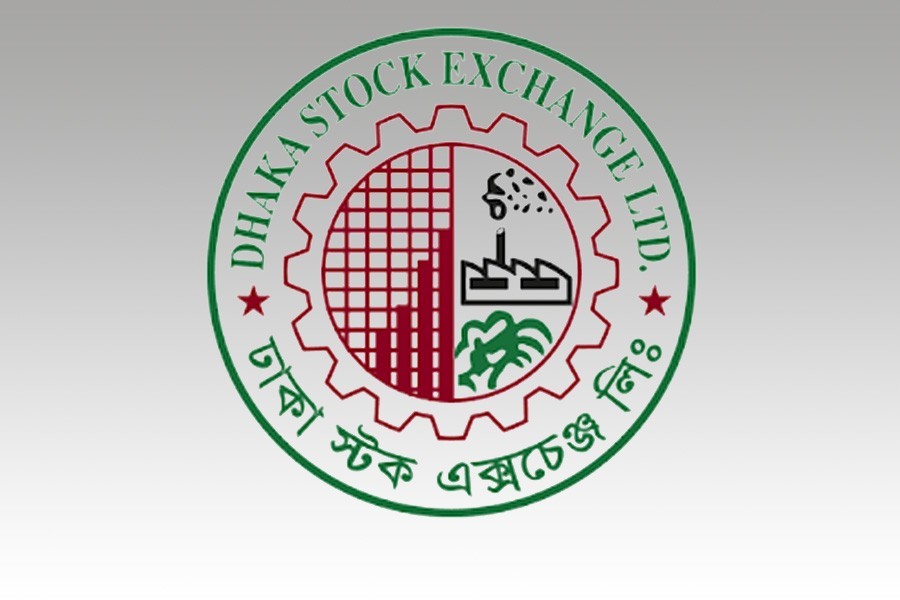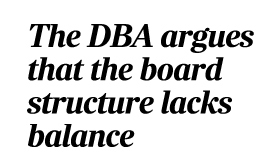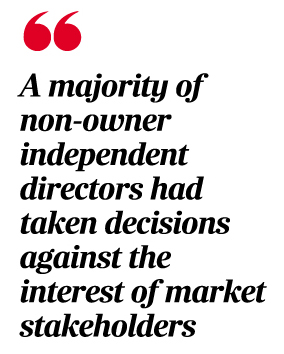Revision of demutualisation scheme
Brokers seek to curtail power of DSE’s independent directors

Published :
Updated :

Stockbrokers have demanded a revision of the demutualisation scheme of the Dhaka Stock Exchange (DSE), starting with a reduction in the dominance of independent directors on the bourse's board.
They want the size of the board to be downsized to 11 members from 13, eliminating two independent directorships.
This may fuel the debate further about the effectiveness of the scheme aimed at improving transparency and accountability in the management of the bourses.
The DSE Brokers Association of Bangladesh (DBA) wrote to Dr. Anisuzzaman Chowdhury, Chief Adviser's special assistant and chairman of the Capital Market Development Committee, requesting a review and revaluation of the scheme. Copies of the letter were also sent to the chief of the Bangladesh Securities and Exchange Commission (BSEC) and the head of the premier bourse.
The DBA made the issue public through a press release on Saturday.
In the letter, the DBA said it wanted amendments to the demutualisation scheme, outlining how the restructured board would look like.
As per the current provision, the DSE board comprises 13 members - seven independent directors, four shareholder directors, one strategic investor nominee, and managing director (ex-officio). The board chair must be selected only from the pool of independent directors.
The DBA argued that the board structure lacks balance. It said that during the previous political regimes, appointments to the top position and the positions of independent director had been made based on political considerations.
Many of those independent directors were from outside the capital market, often lacking required knowledge and experience, which negatively affected decision making and the market's development, the DBA said in the letter.
Moreover, the DBA said a majority of non-owner independent directors had taken decisions against the interest of market stakeholders.
"This practice led to politicisation of the exchange, disrupted market discipline, and weakened institutional foundations, ultimately harming investors. The DBA fears a recurrence of such scenarios under future political administrations," reads the letter.
The DBA proposed restructuring the board with five independent directors, four shareholder directors, one strategic investor nominee and one managing director (ex-officio). The position of the board's chair should be open to all board members, except for the MD, and the chair should be elected by the board members in their first meeting after reconstitution, said the brokers' association.
The DBA said it believed the proposed structure, if enforced, would ensure balance, transparency in decision making, and promote sustainable market development.
The demutualisation scheme was executed in 2013, allowing dominance of independent directors to provide a shield against market manipulation by brokers. Until then, stock exchanges had been owned and managed by brokers only. Separating management from the ownership of the stock exchanges came to the fore after the stock market crash in 2010.
An investigation into the market collapse unveiled brokers' involvement in the stock price bubble and subsequent burst.
Now, the DSE Brokers Association of Bangladesh (DBA) wants partial undoing of the demutualisation scheme.
Apart from the restructuring of the board, brokers demanded two more major changes in the scheme.
One is empowering the managing director in the DSE board.
Under the DSE Board & Administration Regulation of the Demutualisation Scheme, the Chief Regulatory Officer (CRO) reports only to the Regulatory Affairs Committee (RAC). The CRO is not obligated to report to the MD/CEO. As a result, the MD may lack knowledge about regulatory affairs, which, the DBA says, causes a disconnect between them and the market intermediaries.
The DBA proposes that CRO report to both MD and the Regulatory Affairs Committee. That would bridge the communication gap, restore confidence, and ensure that the MD is well informed of regulatory affairs, said the letter.
The second one is the removal of the prescribed DSE organogram from the demutualisation scheme.
The scheme imposes a rigid and permanent organogram for DSE management, but the DBA wants flexibility so that the DSE board can change the organisational structure as needed. That, according to the brokers' association, would allow the exchange to function more effectively and independently as a self-regulatory organisation.
farhan.fardaus@gmail.com


 For all latest news, follow The Financial Express Google News channel.
For all latest news, follow The Financial Express Google News channel.